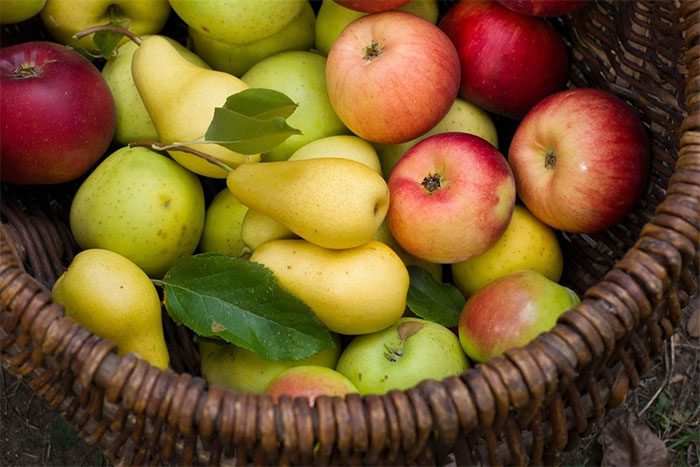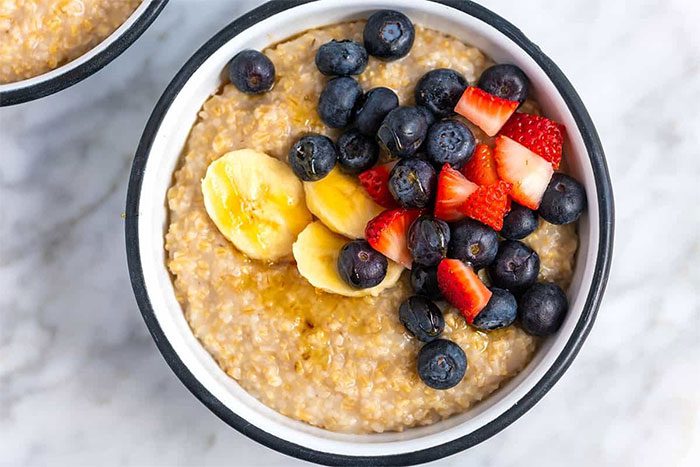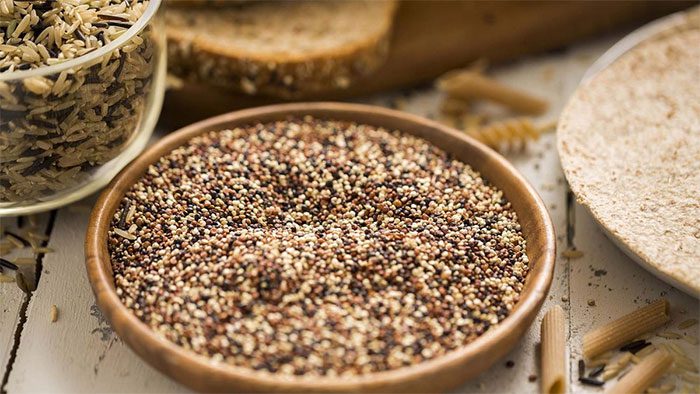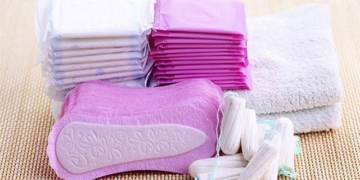Many nutrition experts believe that if you want to lose weight, you can eat carbohydrate-rich foods such as bread, sweet potatoes, apples, and pears.
Carbohydrate-Rich Foods That Won’t Make You Gain Weight
According to Eat This Not That, most nutritionists and doctors agree that carbohydrates are essential macronutrients for health.
Polish researchers used data from a study presented at the European Society of Cardiology Congress in 2018, warning that a long-term low-carb diet can lead to negative health outcomes.
The study found that eating less than 215 grams of carbs daily over six years increased the risk of cancer death by 36% and cardiovascular death by 50%.
A 2019 meta-analysis published in The Lancet suggested that carbs may protect metabolic processes and reduce the risk of diabetes, cancer, heart disease, and stroke.
Apples and Pears

Fruits like apples, pears, and bananas provide many essential nutrients for health. (Photo: Shutterstock).
These fruits are considered carbohydrate-rich foods due to the fructose found in them. However, their nutritional benefits outweigh the carbs, especially when eaten whole, including the skins of apples and pears.
Nutritionist Amy Shapiro states: “Whole foods that are high in fiber, often containing water and nutrients, help slow digestion, making us feel full longer and reducing cravings for sugar.”
When you eat the skin, the fiber content in apples and pears averages 4.8 and 5.5 grams respectively.
Bread and Pasta
According to Eat This Not That, both bread and pasta are important for a balanced diet.
Clinical nutritionist Dr. SuNui Escobar warns: “Eliminating all carbs can backfire on your health, leading to significant deficiencies. Carbs provide glucose, which is essential for energy production in cells, including the brain. They also contain fiber, vitamins, minerals, and other beneficial nutrients.”
You should choose bread and pasta made from whole grains, which are complex carbohydrates that digest slowly.
Oats

Oats help improve satiety, aiding in weight loss. (Photo: Inspired Taste).
Steel-cut oats are a type of whole grain that is high in fiber. A meta-analysis of studies published in Nutrients showed that type II diabetes patients experienced reduced fasting blood sugar and HbA1C levels (a blood sugar index used to assess diabetes and related issues) after eating oatmeal, despite its high carbohydrate content.
Other studies have indicated that the soluble fiber known as beta-glucan in oatmeal helps improve satiety, potentially leading to weight loss.
Beets
A serving of beets, about one cup, contains 13 grams of sugar. However, it will not affect your blood sugar levels or weight like the equivalent amounts found in rice pudding or cookies. This is because it contains 2.8 grams of fiber, which slows the absorption of sugar into your bloodstream.
Nutritionist Lauren Chaffin notes: “Even starchy vegetables like beets have incredible health benefits. Beets contain many micronutrients, notably providing 20% of our daily folate requirement in one serving.”
Potatoes
According to Eat This Not That, one way to mitigate the impact of carbohydrates on your blood sugar is to relax before eating.
Cooling potatoes after cooking turns them into a type of “resistant starch”, meaning they resist digestion and do not spike blood sugar levels.
Because their starch is not digested in the small intestine, your gut bacteria will process it. This will balance your blood sugar levels and support a healthy gut microbiome, both of which promote weight loss.
Sweet Potatoes

Sweet potatoes and potatoes are both rich sources of vitamin C, potassium, and fiber for health. (Photo: Everyday Health).
To diversify your diet, you can incorporate sweet potatoes into your weight loss meal plan. Sweet potatoes are packed with antioxidants like beta carotene, which our bodies convert into vitamin A.
Nutritionist Lauren Chaffin says: “Just one serving contains all the beta carotene we need in a day. Both sweet potatoes and red-skinned potatoes are excellent sources of vitamin C, potassium, and fiber.”
Green Peas and Lentils
One cup of green peas contains about 12 grams of fiber and around 45 grams of carbohydrates, making this super high-carb legume perfect for those monitoring their carb intake and weight.
Clinical nutritionist Escobar states: “All beans, including green peas and lentils, are carbohydrate-rich foods packed with essential vitamins and minerals.”
Bananas
Another carbohydrate-rich food that won’t make you gain weight is bananas. First, bananas are high in potassium, which helps lower blood pressure. Therefore, eating one banana a day is a good way to protect your heart.
If you’re concerned about the high sugar content in bananas, opt for slightly ripe ones. Slightly ripe bananas contain less sugar and, like cooled potatoes, have more resistant starch that helps improve the ratio of beneficial to harmful bacteria in the gut.
Quinoa

Quinoa can be a substitute for rice if you want to lose weight. (Photo: Elle).
When you feel you need a starch like rice for a side dish, opt for quinoa. This whole grain offers numerous benefits: it is a good source of fiber and protein, helping to curb hunger and slow the absorption of carbohydrates (sugar) into your blood.
Whole grains like quinoa take longer to digest, which tends to prevent overeating. This digestive process increases the number of calories burned.
In a study published in the American Journal of Clinical Nutrition, researchers found that those who ate whole grain foods for six months burned an additional 100 calories per day due to an increased resting metabolic rate.
Blueberries and Raspberries
Nutrition experts say that eating a variety of fruits, even those high in carbs, will provide health benefits that overshadow the calories and sugar you get from these foods.
Berries are an excellent choice to include frequently in your diet. They are high in fiber and are among the most nutrient-dense carbohydrates you can eat, packed with antioxidants, vitamins, and minerals.



















































